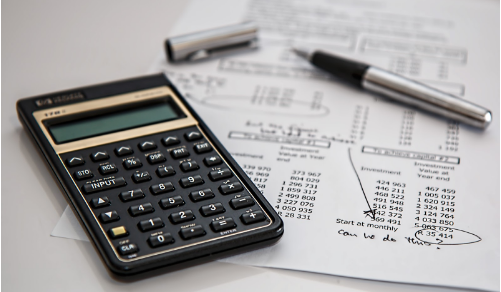10 Financial Tips to Save on Taxes and More

In the U.S., tax season is upon us once again. And for many of us, it means scrambling to get our paperwork in order and figuring out how to minimize our tax liability.
But it doesn’t have to be so stressful. With some planning and thoughtful financial moves, you can save much money come tax time.
Taxes are one of the most significant expenses we face each year. So it pays to be mindful of ways to reduce your tax bill. It will leave you with more money in your pocket to save or spend as you please. And most importantly, it can help reduce your financial stress.
Here are a few tips to get you started:
1. Make sure you’re taking advantage of all the deductions and credits you’re entitled to
There are a lot of potential deductions and credits out there, so it’s necessary to do your research and ensure you’re taking advantage of all the ones that apply to you.
It could include deductions for your home office or business expenses, child and dependent care credits, and more. In addition, be sure to check for any state or local tax deductions or credits that you may be eligible for.
However, you can always hire a professional tax advisor to help you make the most of your deductions and credits. For instance, you can seek tax help from Busy Bee Advisors to maximize your savings.
This way, you can rest assured knowing you’re taking full advantage of everything you’re entitled to.
2. Consider contributing to a retirement account
You can deduct the contribution from your taxable income by contributing to a traditional IRA or 401(k). This can help to lower your tax bill. And, of course, you’ll be doing your future self a favor by saving for retirement.
The earlier you start, the better. Moreover, you can also consider contributing to a Roth IRA. With a Roth IRA, you won’t get an up-front tax deduction. But your withdrawals in retirement will be tax-free.
3. Keep good records
If you’re self-employed or have a lot of business expenses, keeping good records throughout the year is essential. It will make it much easier to deduct your expenses come tax time.
Be sure to save receipts, invoices, and any other documentation that can prove your expenses. This will help to ensure you get the maximum deduction possible.
Another benefit of good record-keeping is that it can help you spot errors or discrepancies on your tax return. It also helps to have a clear picture of your finances so you can make better financial decisions throughout the year.
4. Invest in yourself
Investing in your education can also aid in paying off taxes. You can deduct the cost of tuition, books, and other educational expenses when you file your taxes.
So if you’re planning on taking any courses or attending seminars this year, keep your receipts and documentation handy. The main thing to remember is that the courses or seminars must be taken to maintain or improve your job skills.
They can’t be for personal enrichment only. But as long as you meet this criterion, you can deduct the cost of your education from your taxes.
5. Check your withholding
The amount of money withheld from your paycheck can impact your tax refund (or bill). To avoid any surprises come tax time, it’s a good idea to check your withholding throughout the year.
This way, you can make necessary adjustments to ensure the right amount is being withheld. The IRS has a helpful withholding calculator on their website that can help you determine the right amount to have withheld from your paycheck.
6. Review your tax return carefully
When it comes to your taxes, accuracy is key. Be sure to review your tax return carefully before you file it. This way, you can catch any errors or mistakes and make corrections as needed.
If you’re unsure about anything on your return, seek professional help. It’s better to be safe than sorry about your taxes.
7. Charity Donations
Donating to charity can also help you save on taxes. You can deduct the amount of your donation from your taxable income. Just be sure to get a receipt from the charity for your donation. This way, you’ll have documentation in case the IRS audits you.
It also helps to keep track of your donations throughout the year. This way, you don’t have to scramble to gather receipts come tax time. Remember, every little bit counts when it comes to deductions.
So if you make a lot of small donations, it can add up to significant savings on your taxes.
8. Keep tabs on tax law changes
The tax code is always changing. So it’s important to stay up-to-date on any changes that could impact your taxes.
You can learn about any tax code changes by visiting the IRS website or speaking to a tax professional. This way, you can ensure you’re taking advantage of all the deductions and credits you’re entitled to.
9. Plan ahead
One of the best ways to save on taxes is to plan ahead. You can make strategic decisions throughout the year to minimize your tax liability.
For instance, if you’re planning on making a major purchase, you may want to do it in the year when you’ll be in a lower tax bracket.
Or, if you have a large capital gain, you may want to hold off on selling the asset until the following year, when the tax rate on capital gains is lower.
10. Stay organized
Keeping good records and being organized can also help you save on taxes. This way, you can be sure to take advantage of all the deductions and credits you’re entitled to.
And if you’re ever audited by the IRS, having good records will help you prove your case. You will always be required to show documentation for any deductions or credits you claim on your tax return.
So it’s necessary to keep track of all your receipts, invoices, and other documentation throughout the year.
Conclusion
Taking advantage of tax deductions and credits can lower your tax bill and keep more money in your pocket. And by staying on top of your finances, you can make better financial decisions throughout the year.



